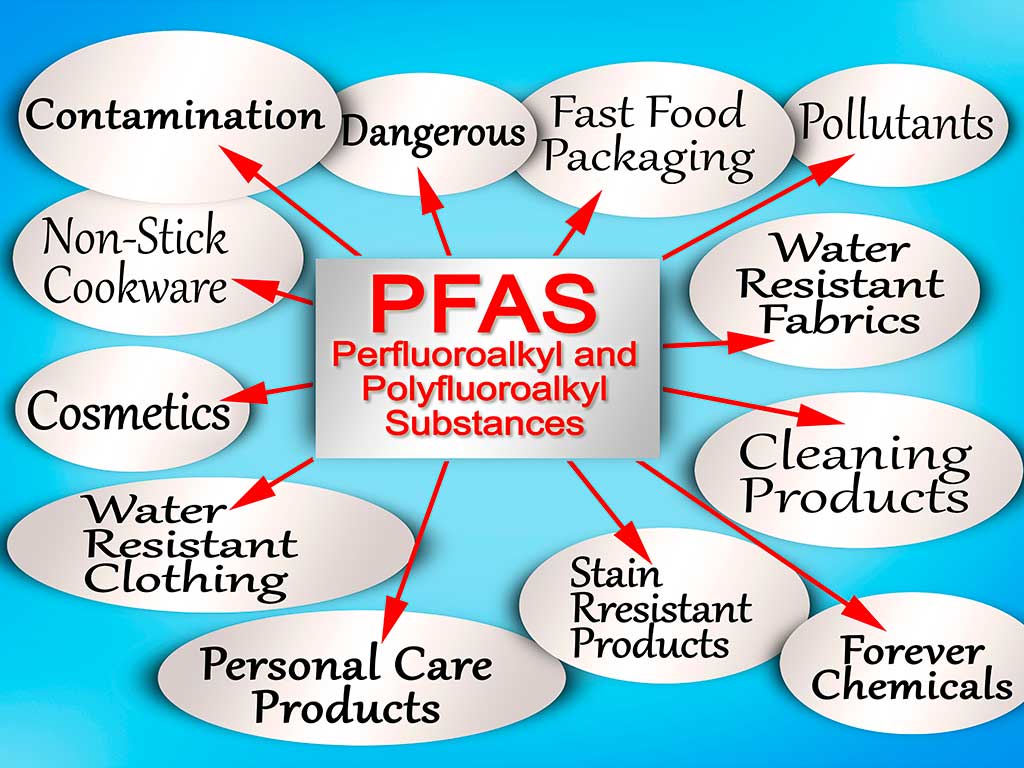PFAS left our headlines, but not our homes. Take steps today!
By Jade Christensen
Forever chemicals, PFAS, or per- and polyfluoroalkyl substances are a group of chemicals with over a thousand different varieties (EPA 2023). These chemicals have been linked to serious health conditions, most notably cancer. There is no denying PFAS pollution has scared many about the future health of our lands and farms.

Alongside farms, PFAS pollution impacts our wildlife and fisheries through bioaccumulation. For instance, we find high levels of PFAS in many fish species and shellfish. In Maine’s past, areas frequently applied biosolids from municipal sewage and contaminated irrigation to help farmland (Maine Farmland Trust 2023).
What has been done?
- In 2019 the Department of Agriculture, Conservation, and Forestry (DACF) began testing Maine produced pasteurized milk. Most of the milk that was studied is safe for consumption, and those with more concerning amounts of PFAS are working with (DACF) to create plans to reduce the levels (Maine Farmland Trust 2023).
- To reduce PFAS increase crop management on forage grass and legumes with the highest uptake of PFAS and move away from corn silage and grain with a lower PFAS uptake (Kersbergen NA).
- Maine has deemed 700 sites as high risk of contamination. The goal is to have all of these sites tested by 2025 to determine the soil concentrations (Maine Farmland Trust 2023).
- In 2022, Maine passed LD 2023 which included a $60 million budget for farmer support for those suffering from PFAS contamination (Maine Farmland Trust NA).
What can you do?
- Test your tap water and drinking water for contamination and install filtration systems to assist in mitigating the issue. (EPA 2022)
- Reduce the use of PFAS-covered products at home. For example, switching out nonstick pans with stainless steel.
- Advocate for in-state renewable energy programs on PFAS contaminated farmland where remediation is not possible.
- Support smaller local farms or organizations that work with farmers like Maine Farmland Trust or MOFGA.






